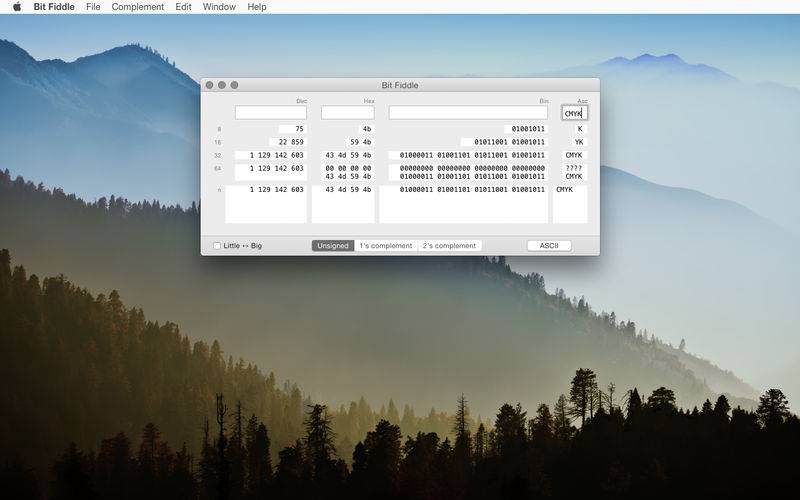Ever wanted to know what the two's complement of 1 Googol is written as a hexadecimal number? Or do you need a quick ASCII table? Bit Fiddle can help you!
- Convert artibtrary large decimal, hexadecimal or binary numbers or ASCII characters.
- Compute the 1's complement or the 2's complement.
- Alter the byte order of the input to convert between Little and Big Endian.
- View a simple ASCII table with additional information for each character.
All in a compact interface which immediately shows you all needed values just one click or keystroke away.
The conversion results are displayed in different numeral systems and with the most common integer sizes: 8, 16, 32, 64 and n bits. The n-variant uses as many bytes needed to store the unsigned representation of the entered number.
You can enter any integer number formatted in any way you like: All characters not part of an integer will automatically be omitted. Following are the digits which will be parsed:
- Decimal digits: 0123456789
- Hexadeciaml digits: 0123456789abcdef as well as ABCDEF
- Binary digits: 01 as well as the letters oiOI and L
- ASCII characters: The input encoding is UTF-8 but only the printable characters of 7-bit ASCII are visible in the output. All other characters are presented as a question mark.
The endianness conversion automatically swaps the bytes of any input and will produce output based on that converted number. Do not use this flag unless you know it is exactly what you need!
Note that converting very, very, very large numbers will take a considerable amount of time.


